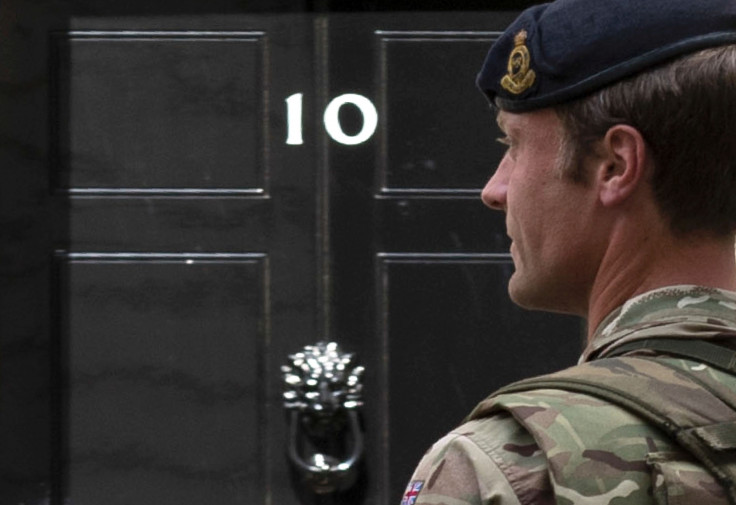Britain moves closer to creating a Global Response Force to tackle changing global threats
The British government has updated the Defence Command Paper with an aim to create a global response force and increase the stockpiles.

The Armed Forces of Britain are getting a new lease of life as the UK government has announced a £2.5 billion investment in stockpiles and a Global Response Force in the Refreshed Defence Command Paper (DCP23) published on July 18.
This is part of the UK government's plan to revamp the British Armed Forces for better warfighting, making them ready to tackle all kinds of situations and adversities.
While the investment is primarily aimed at increasing and improving the stockpiles of the armed forces, a plan to launch a UK Global Response Force is also on the cards which will help the forces to "get there first" and take action. DCP23 has also laid emphasis on the use of science and technology to gain an advantage on the battlefield.
Measures underlined in the paper
The paper takes into account key learnings for the war in Ukraine and other such security threats and has put forward a plan to create a warfighting force that will track global events and take action accordingly. Earlier this year, the Integrated Review Refresh identified Russia as a potential threat and named China as a long-term systemic challenge.
With DCP23, the government is planning to modernise the Armed Forces, making them adaptable to the changing dynamics of the world.
According to the plans underlined in the paper, the UK government is rejuvenating the forces with the following things by prioritising science and technology.
- Building a global response force by taking in the best from all domains. This will put together the best deployed and high-readiness forces across disciplines.
- £2.5 billion additional investment for stockpiles and animations along with the already announced increased investment in the Autumn Statement.
- An additional £400 million in funding to modernise the Armed forces and families' accommodation facilities which will increase its operational capabilities.
- Use of science and technology to incorporate the finest from disciplines like human augmentation, robotics, direct energy weapons and advanced materials to develop cutting-edge technology for the battlefield.
- Building an enhanced surge capacity via the Strategic Reserve which will be created around former regular reserve forces. It will enhance the warfighting readiness of the forces drawing from in-depth analysis and expertise of the ex-reserve forces.
- Forming a new improved alliance between the industry and the forces to make the forces better equipped for the changing needs of the words. This would be done through strategic conversations and greater financial headroom to develop new technologies.
- Increasing the fluidity between the industry, the civil service and the military through a new employment model and skills framework. This will provide the armed forces with better incentives and compensation packages.
Maintaining Britain's lead in NATO
Speaking about the matter, the UK Defence Secretary, Ben Wallace stressed the importance of modernising the fleet in order to adapt to the changing global security threats. Wallace highlighted how we need to take lessons from the Russian President's unprovoked invasion of Ukraine and its subsequent impact on the economy.
The aim of DCP23 is to sharpen Britain's strategic approach, making sure that the country remains at the forefront of military capability and sustains its leading role in NATO, Wallace added.
Britain has fulfilled its role in NATO by leading European efforts in supporting Ukraine's defence and being the lead contributor in NATO since the Defence Command Paper was published in 2021. The UK has consistently spent 2 per cent of its GDP on Defence which will be gradually increased to 2.5 per cent. Recently, the UK announced 14 sanctions to fight the unlawful deportation of Ukrainian children by Russia.
Wallace underlined how global threats and challenges faced by the world have drastically changed in the last two years in the wake of Russia's invasion of Ukraine, making it crucial that the armed forces of the UK also evolved.
DCP23 with its more campaigning approach to global competition will fulfil the government's priorities of reducing inflation and economic growth of the country, Wallace added.
Better alliance with partners and allies
The UK Minister for the Armed Forces, James Heappey, said that the forces understand that it needs to maintain an advantage over adversaries and respond rapidly amidst changing geopolitical and economic threats.
Heappey explained how the Defence Command Paper 2023 will help the forces forge better alliances with its allies and partners by prioritising investments in modernising and integrating the armed forces.
The paper takes care of various areas and is broken down into chapters like 'Strategic Resilience', 'Deterrence and Defence', 'Campaigning and Global Competition', 'Science, Innovation & Technology', 'People', etc.
© Copyright IBTimes 2024. All rights reserved.






